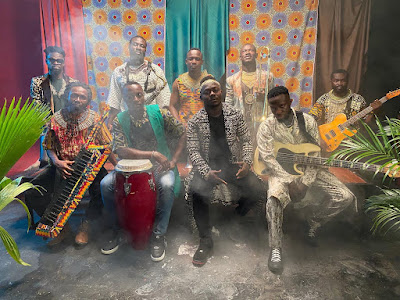Choral singing has long been a major thing in South Africa.
For example, Solomon Linda's "Mbube" (also known as "The Lion Sleeps Tonight") is an international standard that children around the globe learn in their first music classes. Urban vocal "hep harmony" groups like the female Skylarks (featuring Miriam Makeba) and the male Manhattan Brothers, and musical theater productions like King Kong and Wait A Minim! brought South African singing to the world in the mid-20th century. More recently, Ladysmith Black Mambazo's a cappella style called isicathamiya became and remains popular all over the planet.
Kasi soul and Diepkloof United Voice (DUV) are South Africa's latest contribution to choral singing. DUV is a nine-member vocal group from the Diepkloof neighborhood in Johannesburg's Soweto suburb who rehearse in an abandoned elementary school classroom with broken windows. Their debut album, recorded in their rehearsal room and released on November 10, is one of the most exhilarating pieces of music I've heard all year.
The first hour of Global A Go-Go this week is focused on South African choral music. You'll hear a set of historic recordings from the 1930s through the 80s, three selections from Diepkloof United Voice and examples of how vocal choirs are used in contemporary South African dance music.
In the second hour this week (Sunday November 19, 1:00-3:00 PM on WRIR, for two weeks afterwards at
wrir.org/listen, check your local listings for airing on other radio stations, and any old time at
my podcast site): A previously unreleased recording of one of Mali's greatest post-independence orchestras, Super Biton de Ségou, and new Afrobeat from Eparapo, Alpacas Collective, London Afrobeat Collective and The Blassics.







